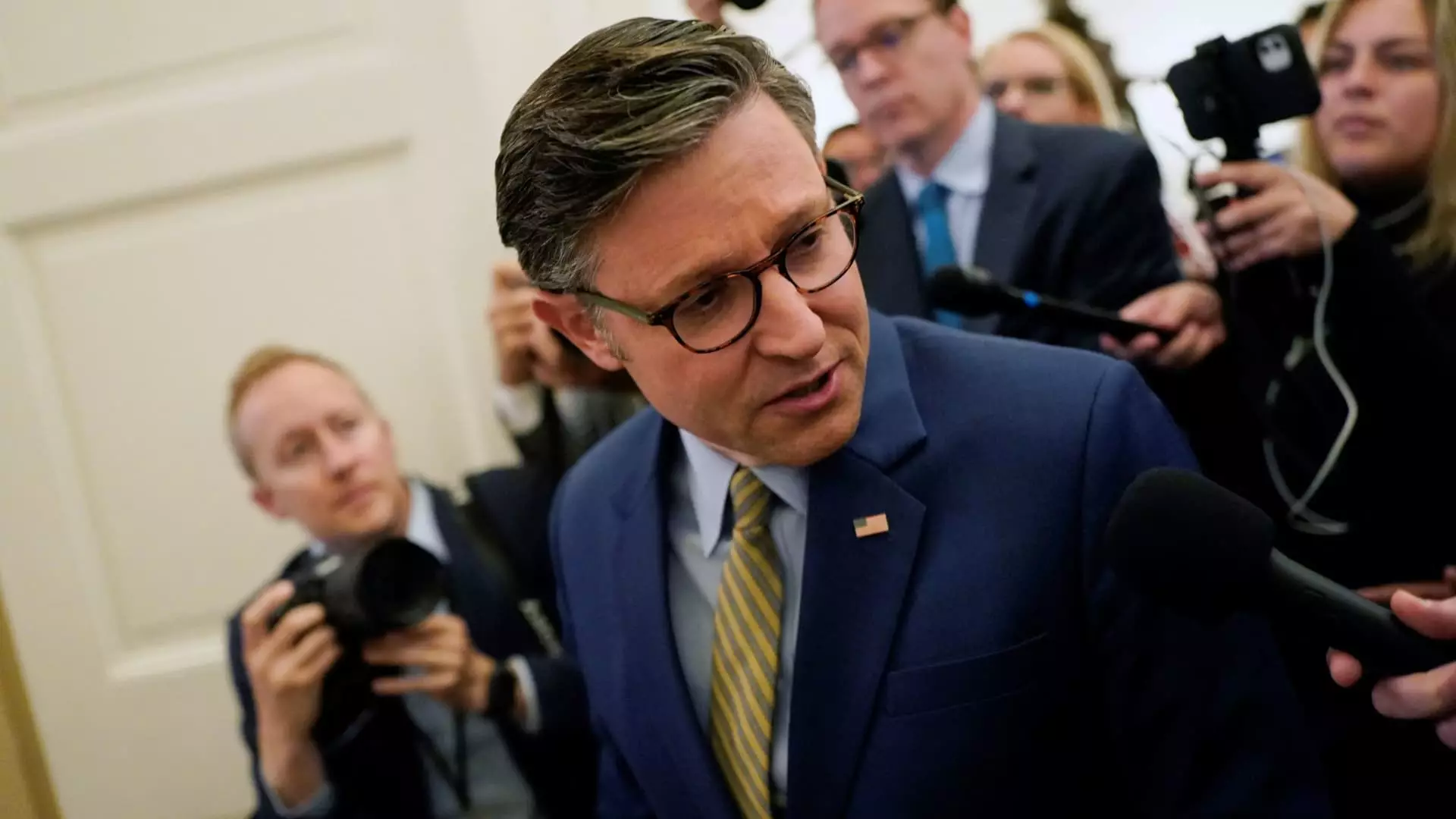House Speaker Mike Johnson’s recent exuberance over the passage of the so-called “big, beautiful bill” raises immediate red flags about the future health of the American economy. He claims that this legislation represents the largest spending cut in three decades. However, the euphoric assertion comes hand-in-hand with a glaring contradiction. Johnson and fellow Republicans vehemently dismiss warnings from the nonpartisan Congressional Budget Office (CBO), which forecasts that the extensive tax cuts embedded in the package could escalate the national deficit by an alarming $3.8 trillion over the next decade. This cavalier attitude toward fiscal responsibility is particularly alarming, as it betrays a fundamental misunderstanding of the intricate relationships that bind government policies, debt, and economic growth.
Deficit Denial and Economic Consequences
Deficit denialism appears to be the rallying cry for Speaker Johnson—and it is nothing short of reckless. While it’s tempting to revel in grand proclamations of renewed economic vigor, one must question the prudence of a fiscal strategy that prioritizes immediate cuts and tax breaks over long-term sustainability. Both traditional fiscal hawks like Sen. Ron Johnson of Wisconsin and more moderate voices within the Republican Party express legitimate concerns regarding the ramifications of such an explosive fiscal policy. Senate Republicans already signal a willingness to amend the spending bill, highlighting the precarious tension between fiscal conservatism and prevailing party-line pressures.
Johnson’s insistence that the bill will unleash economic forcing mechanisms—creating jobs and boosting wages—rests on a shaky foundation of optimism that is oftentimes not mirrored in economic realities. Ignoring CBO projections risks perpetuating a cycle of unsustainable spending and temporary economic ‘booms’ that can quickly give way to hardship when debts come due.
Trump’s Influence and the Pressure to Conform
The specter of former President Donald Trump looms large over the passage of this legislation, as he wielded his influence to navigate a divided House towards approval. Trump’s approach, characterized by aggressive posturing, has resulted in a legislative environment where reason often takes a backseat to loyalty and power. The shallow enthusiasm surrounding the bill, heavily bolstered by Trump’s urgings, indicates a troubling reliance on charismatic leadership rather than sound economic policy.
As the bill makes its way to the Senate, Johnson’s plea for minimal alterations underscores the fragility of this political moment. House Republicans, already confined by their narrow majority, face the challenge of aligning diverse opinions within their ranks. Such polarization raises the question: Are they crafting policy aimed at true economic growth, or merely responding to the whims of leadership and populist fervor?
A Disharmony of Objectives
In the orchestra of fiscal policy, harmony is essential. The cacophony of party allegiance, public optics, and economic populism has contributed to a disjointed narrative around the legitimacy of the “big, beautiful bill.” While Speaker Johnson envisions a revitalized economy teeming with job creators and entrepreneurs, those projections remain overly optimistic without genuine investment in sustainable job creation strategies.
The transaction at play—the ticket to this supposed economic renaissance—may not just be unwise; it might also signify a profound misstep into a future burdened by soaring debt. The American taxpayer could very well find themselves ensnared in the web spun by today’s fiscal folly, where short-term benefits mask long-term consequences. The stakes are too high for complacency in the face of dubious economic promises.

